 Point Pleasant Felony Lawyers, West Virginia
Point Pleasant Felony Lawyers, West Virginia
Not enough matches for Point Pleasant Felony lawyer.
Below are all Point Pleasant Criminal lawyers.
Sponsored Lawyers
1-10 of 26 matches
Accident & Injury, Divorce & Family Law, Employment, DUI-DWI
Jon graduated from Widener University School of Law in 1999. Jon returned to West Virginia and worked briefly with the Kanawha County Prosecuting Attorney's Office before joining the Huntington, West Virginia law firm of Offutt, Fisher & Nord as an associate in October, 1999. As an associate, partner, and member at Offutt, Fisher & Nord Jon successfully oversaw Three Hundred litigation cases. Nearly all of the cases involved the defense of automobile insureds, trucking insureds, trucking companies, physicians, and healthcare organizations in lawsuits alleging malpractice. In 2008 Jon was selected as a 'rising star' by Super Lawyers. In November, 2009 Jon left Offutt Nord, PLLC to begin his own firm in Barboursville, West Virginia specializing in personal injury litigation. During his career Jon has successfully taken 36 cases to trial. Jon has successfully tried cases in West Virginia Magistrate Courts, Family Courts, Circuit Courts, and the United States District Court for the Northern District of West Virginia. Additionally, Jon has successfully tried cases in Kentucky District and Circuit Courts as well as Tennessee Family Court. In May, 2010 Jon joined his former law partner, Scott Andrews, and established Hoover Andrews in Barboursville. Jon represents injured persons in the areas of auto accidents, products liability, and premises and workplace liability accidents. Jon is licensed in both West Virginia and Kentucky and is noted for his aggressive oversight of cases. Jon is married to the former Stephanie Thomas, and they have two beautiful children, Brighton Pamela and Rhett Christopher. The Hoover family enjoys numerous outdoor activities while at the beach and in the West Virginia mountains.
(more)White Collar Crime, Education, Immigration, Employment, International
Kendra L. Bunn is a Jacksonville, Florida-based immigration attorney and the founder of the Law Offices of Kendra L. Bunn, P.A., established in 2002. With over two decades of experience, she specializes in immigration law, including visa applications, investor applications, business work visas and family-based petitions. Her firm serves clients throughout Florida and has expanded to the Midwest, with offices in Marietta, Ohio, and Athens, Ohio. Ms. Bunn is recognized for her leadership in the legal community. She was one of the first female attorneys to practice immigration law in North Florida and has held significant roles such as the National Liaison to the USCIS Jacksonville Office, AILA Director of National Citizenship Day in Jacksonville, and National Mentor in the areas of F-1 students, researchers, and international faculty in higher education. Her Florida offices are located at 4720 Salisbury Rd, Jacksonville, FL 32256, and she offers services in multiple languages, including English, Serbo-Croatian, Macedonian, Russian, and Italian. Her Midwest offices are conveniently located between Columbus, Ohio and Pittsburgh, Pennsylvania, serving all of Ohio and Western Pennsylvania. In addition to her legal work, Ms. Bunn is involved in community service. She and her family are active members of the Christian Family Chapel in Mandarin, Jacksonville, Florida. She also volunteers frequently with many sports groups in town, while chasing around her two very busy and active children!
(more)Accident & Injury, Personal Injury, Divorce & Family Law, Criminal
Whether you have suffered an accident while on the job or suffered an injury during a car accident or semi truck accident, The Law Offices of Claude S. Smith III devote personal attention to your case. Our attorney and legal staff understand the pressure and emotional stress experienced by those involved in legal cases. We strive to bring personalized attention and care to every single client.
(more)Accident & Injury, Criminal, Bankruptcy & Debt, Family Law, Trusts
Ron has, over the last decade, assisted clients by planning and designing settlements to address future needs and ensure any government benefits are protected. He has been involved in settlements involving personal injury, workers’ compensation, and employment-related claims. Ron’s consulting and legal services also include providing economic expert witness work, reducing future claimed damages to present value, and advising on work-life expectancy. Our firm brings a unique perspective and approach to law: after more than a decade of advising clients on financial matters, we decided our firm would focus on areas of financial law. This is why bankruptcy, trusts, and tax law are our major focus areas. Of course, we are happy to discuss and assist you with all your legal needs. We aim to be accessible and able to provide personal attention to every client we work with.
(more)







